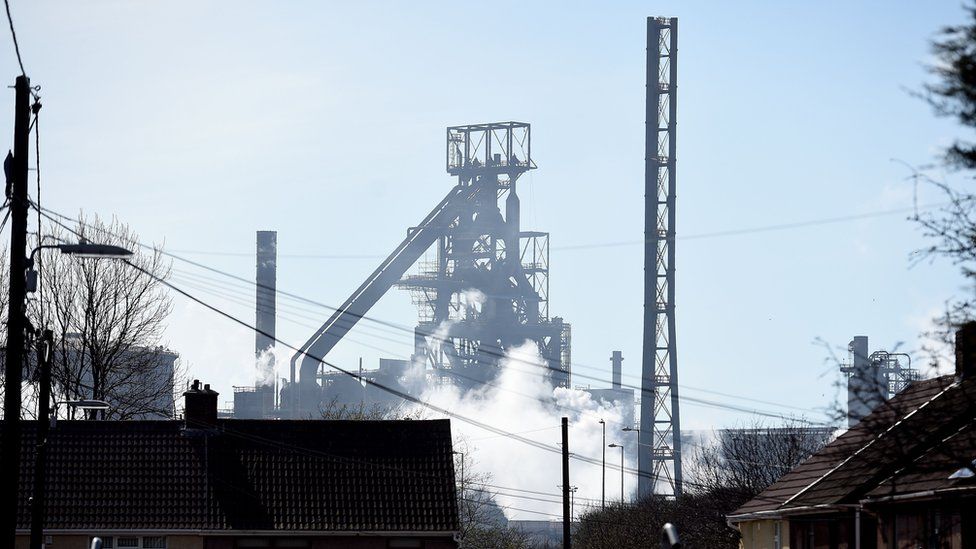UK steel industry and the EU debate
- Published

Conservative MP Tom Pursglove is delivering a letter to the prime minister this afternoon calling on the government to ignore EU rules on state aid and consider nationalising the steel industry.
As a prominent campaigner for Britain to leave the EU, it is no surprise that he believes Britain would be in a better position to protect the steel industry if we were not bound by EU rules.
Those on the other side of the referendum debate point out that the EU is our most important market for steel, with more than half of our steel exports going to the EU and more than two thirds of our imports coming from it.
State aid
The EU Commissioner in charge of competition policy Margrethe Vestager summed up the rules earlier this year.
She said: "EU countries and the Commission have put in place strict safeguards against state aid to rescue and restructure steel companies in difficulty.
"This avoids harmful subsidy races between EU countries and that uncontrolled state aid in one EU country can unfairly put at risk thousands of jobs across the EU", adding: "EU state aid rules enable member states to for example support research activities or relieve energy costs of steel companies".
Whilst it is technically true that outside the EU the UK government would be free to nationalise and subsidise the steel industry, it seems highly unlikely that a Conservative government would want to permanently re-nationalise such a loss-making business.
Chinese dumping
Out campaigners and steel industry representatives agree that EU anti-dumping measures are inadequate to prevent the Chinese dumping low-cost steel into the market.
The Lesser Duty rule caps tariffs at 9%. UK Steel, the trade association for the steel industry, says this has little effect when heavily-subsidised Chinese steel is sold at 66% of cost price. Ministers have argued against lifting the cap, saying higher tariffs would hit other sectors such as the car industry.
UK Steel does not accept the government's argument on this, pointing out that other EU countries such as France and Germany, which both have important car manufacturers, are in favour of lifting it.
If Britain were to leave the EU it would certainly have greater freedom to impose anti-dumping tariffs. But Britain's steel industry is closely tied to the EU - exporting some three million tonnes of steel products last year.
Outside the EU, the British steel industry could itself face punishing tariffs, depending on what sort of deal could be negotiated.
It is worth noting that many of the measures the steel industry is seeking could be implemented by the British government: lower business rates, a relaxation of carbon emissions targets for heavy manufacturers, more compensation for high energy prices, and a commitment that British steel is used in major construction projects.
But the future of British steel has already become another important issue in the debate over whether we would be better off in or out of the European Union.